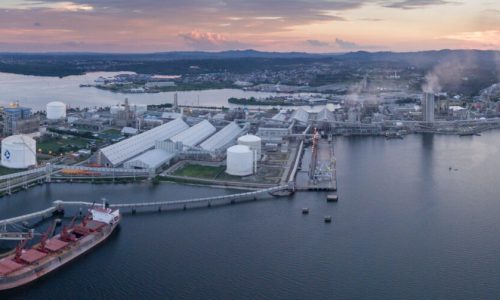Indonesia is nearing the completion of a Smelter Grade Alumina Refinery (SGAR) facility in Mempawah Regency, West Kalimantan. The SGAR plant is owned by PT Aneka Tambang (ANTM) and PT Indonesia Asahan Aluminium (Inalum).
Nico Kanter, CEO of ANTM, said that as of March 2024, the construction progress of the SGAR Mempawah plant has reached 85 percent. He cited that the commissioning of the plant is scheduled for June 2024.
“The SGAR project is currently at 85 percent completion as of yesterday. The commissioning will take place in June 2024, and as for the initial production percentage, I am not aware yet,” Nico said on Tuesday, March 26, 2024.
According to ANTM’s presentation, the SGAR project in Mempawah has an investment value of up to US$830 million (IDR 13.2 trillion).
This project is a collaboration between ANTM and Inalum, with ANTM controlling 40 percent of the plant and Inalum holding a 60 percent ownership stake.
Nico said that once the construction is completed, Indonesian President Joko “Jokowi” Widodo will attend the commissioning ceremony and the plant’s first production.
He said further that the alumina production from the plant will be partly supplied to Inalum and partly exported.
“And the supply destination will be Inalum in Kuala Tanjung later on, with plans to supply some to Inalum and some for export,” he emphasized.
Previously, President Jokowi conducted an inspection of the SGAR in Mempawah Regency, West Kalimantan, on March 20, 2024. Jokowi aimed for the bauxite processing to be completed by June 2024.
“This will be completed by June this year. Then full capacity will be in early 2025,” he said.
Jokowi said that most of the bauxite ore is located in West Kalimantan province, necessitating the construction of processing plants in the area.
After being processed into alumina, it will be transported to the Kuala Tanjung area, where the aluminum industry is located.
“It will be processed there to become aluminum, so we no longer need to import. That’s the target,” the president said.
Jokowi hoped that after the completion of this processing plant, it would serve as a substitute for imported raw materials, thus retaining foreign exchange reserves within the country.







